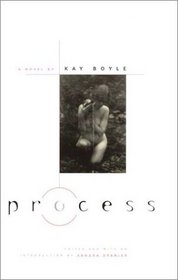Search -
Process: A NOVEL
Process A NOVEL
Author:
Process is the first novel written by Kay Boyle, one of the most enduring writers of modernist American literature. Written in 1924 and 1925, when Boyle was a young American living in France, Process was circulating among potential publishers when the manuscript disappeared. Three-quarters of a century later, Sandra Spanier, preeminent authority... more »
Author:
Process is the first novel written by Kay Boyle, one of the most enduring writers of modernist American literature. Written in 1924 and 1925, when Boyle was a young American living in France, Process was circulating among potential publishers when the manuscript disappeared. Three-quarters of a century later, Sandra Spanier, preeminent authority... more »
ISBN-13: 9780252026683
ISBN-10: 0252026683
Publication Date: 5/1/2001
Pages: 96
Edition: First Edition
Rating: 1
ISBN-10: 0252026683
Publication Date: 5/1/2001
Pages: 96
Edition: First Edition
Rating: 1
3 stars, based on 1 rating
Publisher: University of Illinois Press
Book Type: Hardcover
Other Versions: Paperback
Members Wishing: 0
Reviews: Amazon | Write a Review
Book Type: Hardcover
Other Versions: Paperback
Members Wishing: 0
Reviews: Amazon | Write a Review
Genres:
- Literature & Fiction >> General >> Contemporary
- Literature & Fiction >> General >> Literary
- Literature & Fiction >> Authors, A-Z >> ( B ) >> Boyle, Kay
- Literature & Fiction >> Women's Fiction >> Mothers & Children




